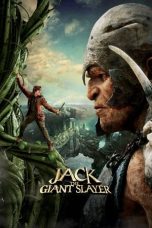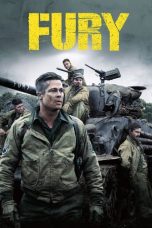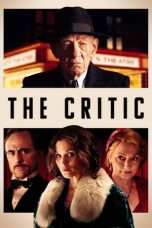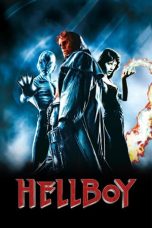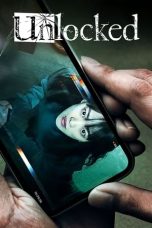- Source: Skippy Hollywood Theatre
Skippy Hollywood Theatre is an American radio dramatic anthology program that began as a syndicated series and later was broadcast on CBS from December 1, 1949, through September 21, 1950.
Origin
Rosenfield Packing Company initially ventured into radio as an advertising medium for its Skippy peanut butter when it sponsored Superman in Fresno, California, and San Francisco. After that start, it added half-sponsorship of Superman in Los Angeles. Successful results led the company to seek to sponsor the program in other markets, but none were available. The company then worked with its advertising agency "to develop a program which would be reasonable in cost, would belong to Skippy, and would permit unlimited expansion as Rosefield grew."
The manufacturer and the agency consulted with C. P. MacGregor, who had experience in producing radio transcriptions. He suggested that the company create a 30-minute dramatic program in Hollywood using "minor screen names and experienced radio talent".: 39 The result was Skippy Hollywood Theatre. Plans called for Skippy to sponsor the show in areas in which it was distributed, while it would be made available (without Skippy in the title) to non-competing advertisers where Skippy was not distributed. With few exceptions, the show "never entered a market until good evening time on a top-rated station was available.": 39
The trade publication Variety reported in November 1945 that Skippy Hollywood Theatre was being heard on more 50,000-watt radio stations west of Chicago than any other program. It added that the show might be the only recorded program "heard regularly week in and week out from WOR, New York, to KGMB, Honolulu."
Overview
Skippy Hollywood Theatre presented original 30-minute dramas. Its format was modeled after that of Lux Radio Theatre,: 39 and it was so similar that some people called the show "the poor man's Lux". MacGregor was the original host, with Les Mitchel as host later. Van Des Autels was the announcer.
Actors who appeared on the program "who were still unknowns when 'Skippy' handed them parts" included Vanessa Brown, Peggy Knudsen and Gale Storm. Equally obscure—at least to American listeners—were the Abbey Theatre Players of Dublin, who made their American radio debut on December 29, 1949 with "The Great Emptiness" (the second of six consecutive episodes recorded when Mitchel was in London earlier that year), featuring, among others, Dermot Walsh and Sheila Manahan. The first of those six episodes was an adaptation of Charles Dickens' A Christmas Carol, whose cast included Alec Guinness, Jean Simmons, John Mills, Dirk Bogarde, Googie Withers, and Derek Bond. Others featured in the London episodes include Michael Redgrave, Clive Brook, and Margaret Lockwood, as well as American expatriates Bebe Daniels, Ben Lyon and Barbara Lyon.
Another notable debut aired in April 1944, when New York Yankees centerfielder Joe DiMaggio appeared alongside then popular child actor Dix Davis in the episode, "One Hit—Two Errors".
New futures are predicted for Joe DiMaggio, the baseball son of California dear to the hearts of the Yanks and now on duty with the Army! Come curtain time for Skippy Hollywood Theater tonight, Joe becomes a Thespian. Batting the 'clean-up' spot in the radio drama, 'One Hit, Two Errors,' Joe's first dramatic appearance is sure to endear him even further to baseball fans.
Episodes
= Syndicated
== CBS
=Production
First MacGregor: 39 and then Mitchel produced and directed the series. MacGregor left after a disagreement over proposed changes. Under Mitchel's leadership, the host's role was diminished, and an emphasis was put on better-known performers and better scripts.: 106 The CBS version was broadcast on Thursdays from 10:30 to 11 p.m. Eastern Time. When the program moved to CBS, it had already received high ratings on the West Coast. The syndicated version was broadcast in more than 55 markets at the time of the shift to CBS.
Mahlon Merrick and Del Castillo directed the music. Writers included Roger Quayle Denny and True Eames Boardman. Some scripts came from amateur writers, including students in evening high schools in Hollywood. Mitchel read scripts submitted from across the United States and from other countries. He acknowledged that some of the submissions were bad, but he said, "I hit the jackpot often enough to make it pay."
When Rosefield Packing Company canceled the series, it planned to shift the funds previously allocated to the program to "an extensive national spot and program campaign in both radio and TV".
Critical response
A review of the episode "Two Hearts in Pigskin" in the trade publication Variety compared the show favorably to other radio dramatic anthologies of that era. It noted that MacGregor "knows dramatic values" and that Hooper ratings indicated his success in providing good programs within budget constraints.
Radio historian John Dunning described Skippy Hollywood Theatre as "a slick show, the equal of many network series". One contemporaneous critic, Bill Bird of the Pasadena Independent, likewise lauded Mitchel's resourcefulness in putting out a polished product while also seeing the program as emblematic of the industry-wide transition from "live" to "canned" entertainment.
[Mitchel] attributes part of the program's success to the fact that, being transcribed, scenes that don't come out right the first time can be redone and spliced into the tape and some of which are then taken off on transcription discs for presentation over the air. What this all adds up to is that the customers apparently care little whether it is 'live' or 'canned' if it is good entertainment.
References
External links
Skippy Hollywood Theatre - 35 Episodes at Internet Archive.
Kata Kunci Pencarian:
- Gene Wilder
- Warner Bros. Pictures Animation
- Kathleen Quinlan
- Kristin Chenoweth
- Time
- Skippy Hollywood Theatre
- Les Mitchel
- Religious Science
- List of old-time radio programs
- Vanessa Brown
- List of U.S. radio programs
- Dix Davis
- Van Des Autels
- Ziv Company
- Madelon Baker
- 1
- 2
Jack the Giant Slayer (2013)
MaXXXine (2024)
Theater Camp (2023)
No More Posts Available.
No more pages to load.


